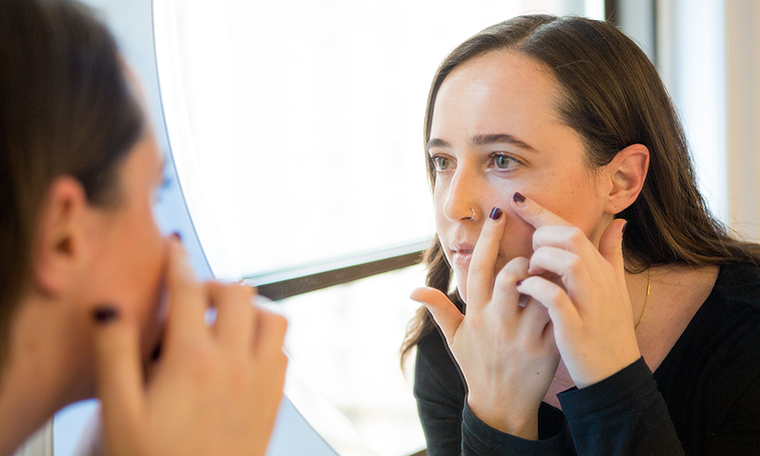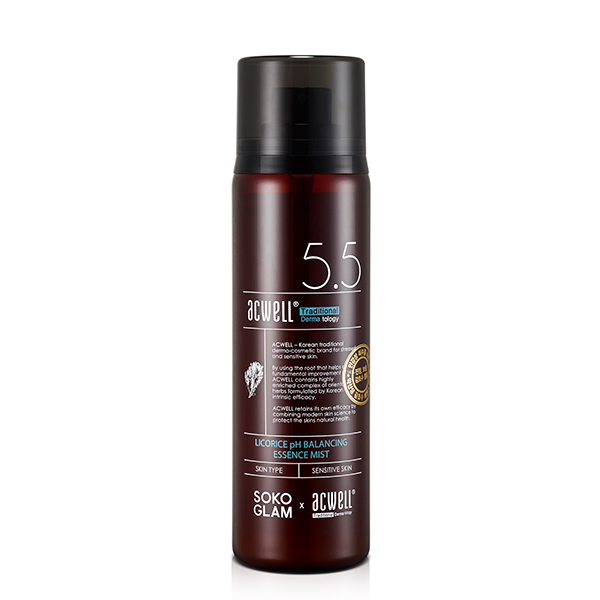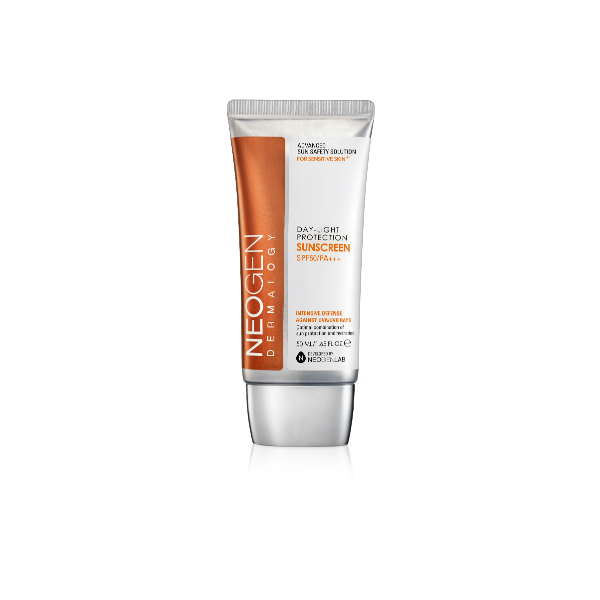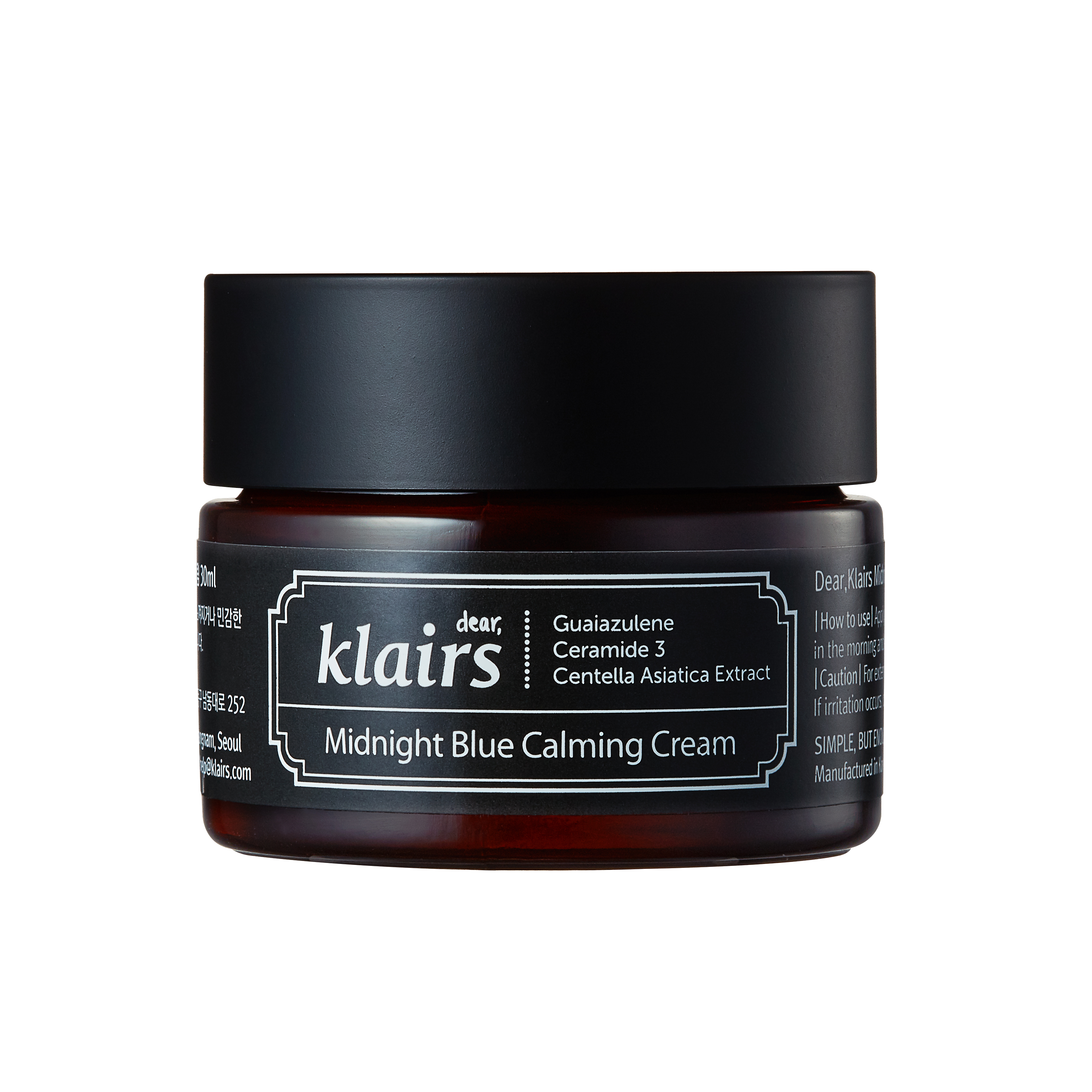Is it too early to start thinking about New Year’s resolutions? If you vow to banish any skin care-related habits in 2021, let it be one (or all!) of the six below.
In a perfect world, we’d never make a single mistake when it came to skin care (or anything else for that matter) and our complexions would be blemish-free and perfectly balanced. The world isn’t perfect, though, as you very well know. As such, we’re all guilty of a handful of bad skin-related habits — some that we’re aware of and others to which we’re oblivious.
To help nip bad habits in the bud, we reached out to dermatologists who shared what they considered the most egregious.
Picking at Our Skin
“If I could snap my fingers and make one bad skin habit disappear, it would definitely be picking,” says Dr. Kenneth Howe, a board-certified dermatologist at NYC’s Wexler Dermatology. “Picking at your skin is one of the most vexing, heartbreaking problems we dermatologists deal with because it can become a deeply ingrained habit resistant to almost any intervention.”
He says that truly habitual pickers do it without even being aware they’re doing so — sometimes even picking at skin in their sleep. Unfortunately, this can lead to minor and major infections, more breakouts, prolonged healing time, and in some cases, permanent damage. This, of course, can create feelings of self-consciousness.
One of the best ways to stop picking is to spend less time in front of the mirror over-analyzing your skin (especially with magnifying mirrors). It’s also important to force yourself to walk away and busy yourself with something else that’s more productive. If you do have scarring or a psychological habit you need to break, Dr. Howe recommends speaking to a dermatologist about treatments that can correct damage, and to look into behavioral modification therapy to prevent further picking.
Relying on SPF in Our Makeup
While SPF in your primer, foundation, and other cosmetic products is great, it’s important to understand that it won’t provide you with the full coverage you actually need.
“Studies show that the application of cosmetics containing sunscreen is not as thorough and provides less protection than when a traditional sunscreen is applied,” says Dr. Audrey Kunin, a board-certified dermatologist and the founder of DermaDoctor. “Think of SPF-containing cosmetics as ‘icing on the cake’ meant to follow, not substitute, sunscreen protection.”
RELATED: Do You Still Need to Wear Sunscreen If Your Foundation Contains SPF 50?
Apply a lightweight sunscreen — such as Neogen’s Day-Light Protection Sun Screen SPF 50/PA+++ ($30) — just before applying cosmetics. And remember: you need sunscreen every single day, even if you’re not spending a lot of time outdoors. UV rays can reach you through windows and even on short commutes.
Taking Really Hot Showers and Baths
Raise your hand if stepping into a steamy shower and spending a good 20 minutes under the showerhead is your idea of a great time. While a relaxing indulgence, it’s not ideal for your skin.
“Taking very warm or hot showers will make already dry skin even worse since hot water and steam can strip the skin of its natural oils,” explains Dr. Debra Jaliman, a board-certified NYC dermatologist and the assistant professor of dermatology at Mt. Sinai’s Icahn School of Medicine. “When skin is very dry, the moisture barrier has been compromised and breaks in the skin occur.”
RELATED: Keep Your Skin Hydrated During the Day by Following These Four Tips
This breaking or cracking can be uncomfortable and sometimes even painful. Also, when the air is already dry — as it is in the winter and in heated homes — hot showers only further compound the issue. Invest in a humidifier, take quicker, cooler showers, and apply moisturizer all over once you dry off.
Neglecting and Abusing Our Cuticles
“I wish people would stop pushing, trimming, or otherwise interfering with their cuticles,” says Dr. Howe. “The cuticles around our nails have a vital function; they act as seals to keep water from creeping into the tissues around our nails. If they’re disrupted and water is allowed to get in, infection — with yeasts or bacteria — often results.”
So… what should we do differently? Dr. Howe says to hydrate our hands daily, but to skip aggressive trimming and leave our cuticles alone. This is especially important at the nail salon when the cuticle trimmers may not be properly sanitized. A better option is to use a gentle cuticle exfoliating treatment like this one. And a rich moisturizer, such as Benton’s Shea Butter and Olive Hand Cream ($11), is a great product to keep at your desk or in your purse.
Not Moisturizing Oily Skin
Applying creams and lotions to dry skin is sort of a no-brainer, but those with oily skin often miss this important step in their routine because they assume they don’t need any more moisture. This, unfortunately, exacerbates the problem and can lead to excessive oil production and even more breakouts.
Choose products that help balance your skin and fight breakouts, but don’t skip out on moisturizers altogether. There are even options available that both hydrate and target oily skin, such as I’m From Mugwort Cream ($32) and Klairs’ Midnight Blue Calming Cream ($24.50).
Catching Zzz’s With an Unwashed Face
“Every night, all over this [world], young women are falling into bed with the full weight of primer, foundation, and concealer still on their faces,” says Dr. Howe. “This leads to a vicious cycle, with acne flares leading to even heavier makeup use.”
Unfortunately, in addition to clogging pores and causing pimples, sleeping with makeup leads to dull skin and, honestly, a more uncomfortable sleep.
While we always advocate a full skin care routine before hitting your pillow, we understand that sometimes you’ve got zero energy. For those rare days, keep a container of makeup remover wipes — try Leaders’ Labotica Argan Oil Deep Cleansing Tissue ($8.50) — next to your bed. Alternatively, use micellar water and a cotton pad. Follow up by spritzing yourself with a hydrator, such as Acwell Licorice pH Balancing Essence Mist ($24).









